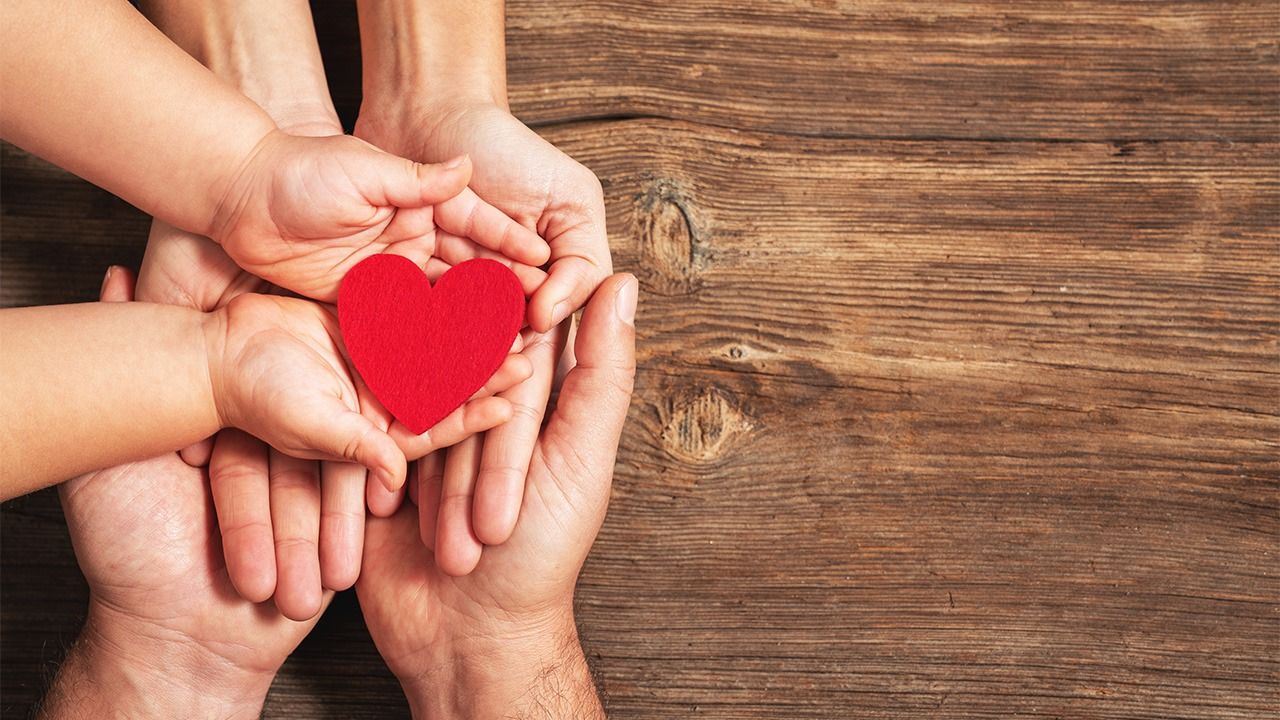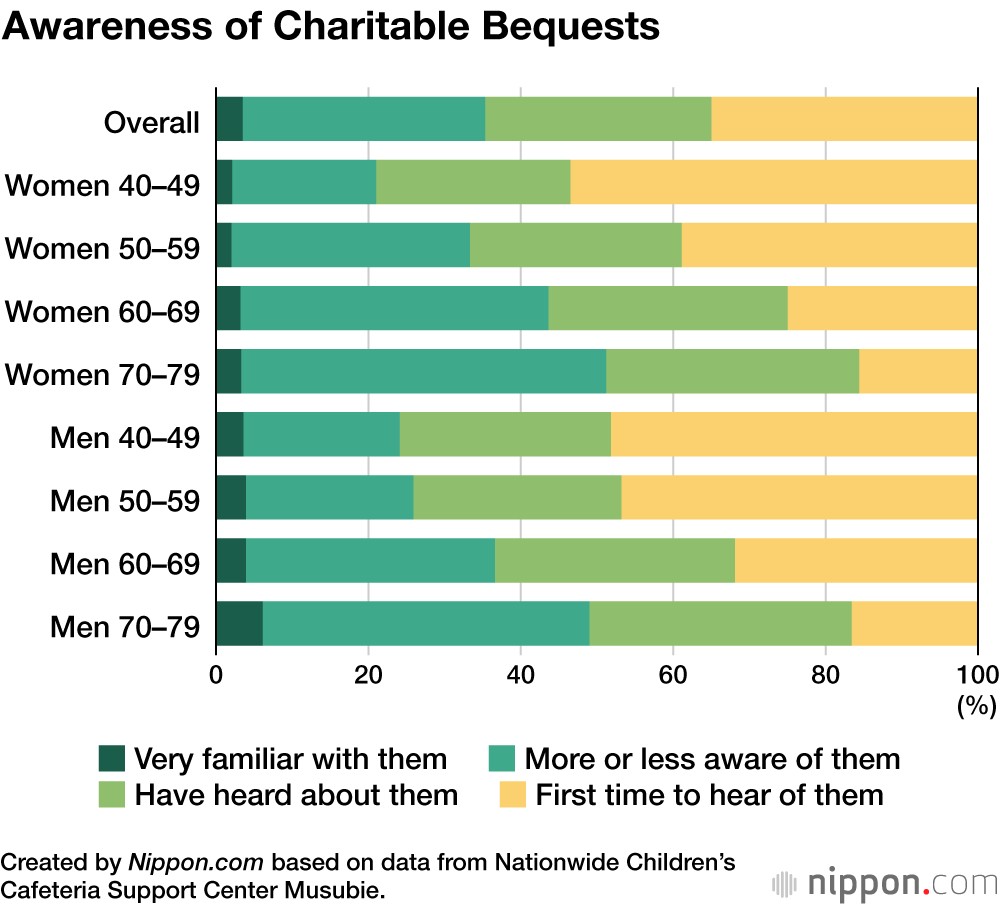
Survey Shows Broad Awareness Among Japanese of Charitable Bequests
Society- English
- 日本語
- 简体字
- 繁體字
- Français
- Español
- العربية
- Русский
Although Japan is often said to have less of a “donation culture” than Western countries, 65% of the respondents of a survey conducted by a non-profit organization said that they were aware of “charitable bequests,” whereby a portion of someone’s estate can be donated to a an NPO or other recipient besides the deceased heirs. Around 10% of those surveyed were considering making a charitable bequest.
Nationwide Children’s Cafeteria Support Center Musubie, an authorized NPO based in Tokyo’s Shibuya, conducted the survey on September 13, which is International Legacy Giving Day. The survey targeted 3,000 people aged 40 to 79. The results showed a higher awareness of charitable bequests as the age of the surveyed persons increased, reaching a level of over 80% among respondents in their seventies. However, only 3.5% of all respondents were aware of the details regarding such bequests.
Among the 311 survey respondents who intend to make a charitable bequest, the most common reason, cited by 37%, was to contribute to society, followed by 32.5% saying they want to do as they like in dealing with their assets and 19.0% who want to express gratitude to those who have helped them.
Meanwhile, among those not planning to make a charitable bequest, the most frequently cited reason, at 39.9%, was concerns about future living expenses, followed by 31.2% who did not think they would have any assets to donate and 29.5% who wanted to give their assets to their heirs. In addition, when asked about the significance or value of such bequests, 54.6% of the respondents said that it was something that is done by the wealthy.
Saitō Hiromichi, Director of the Japan Legacy Gift Association, which assisted the survey, offered the following comment: “Charitable bequests do not affect a person’s future living expenses, and even a small amount constitutes a worthy donation. The two biggest misconceptions that need to be overcome are related to concerns about future living expenses and the idea that such bequests are only made by the rich.”
(Translated from Japanese. Banner photo © Pixta.)
